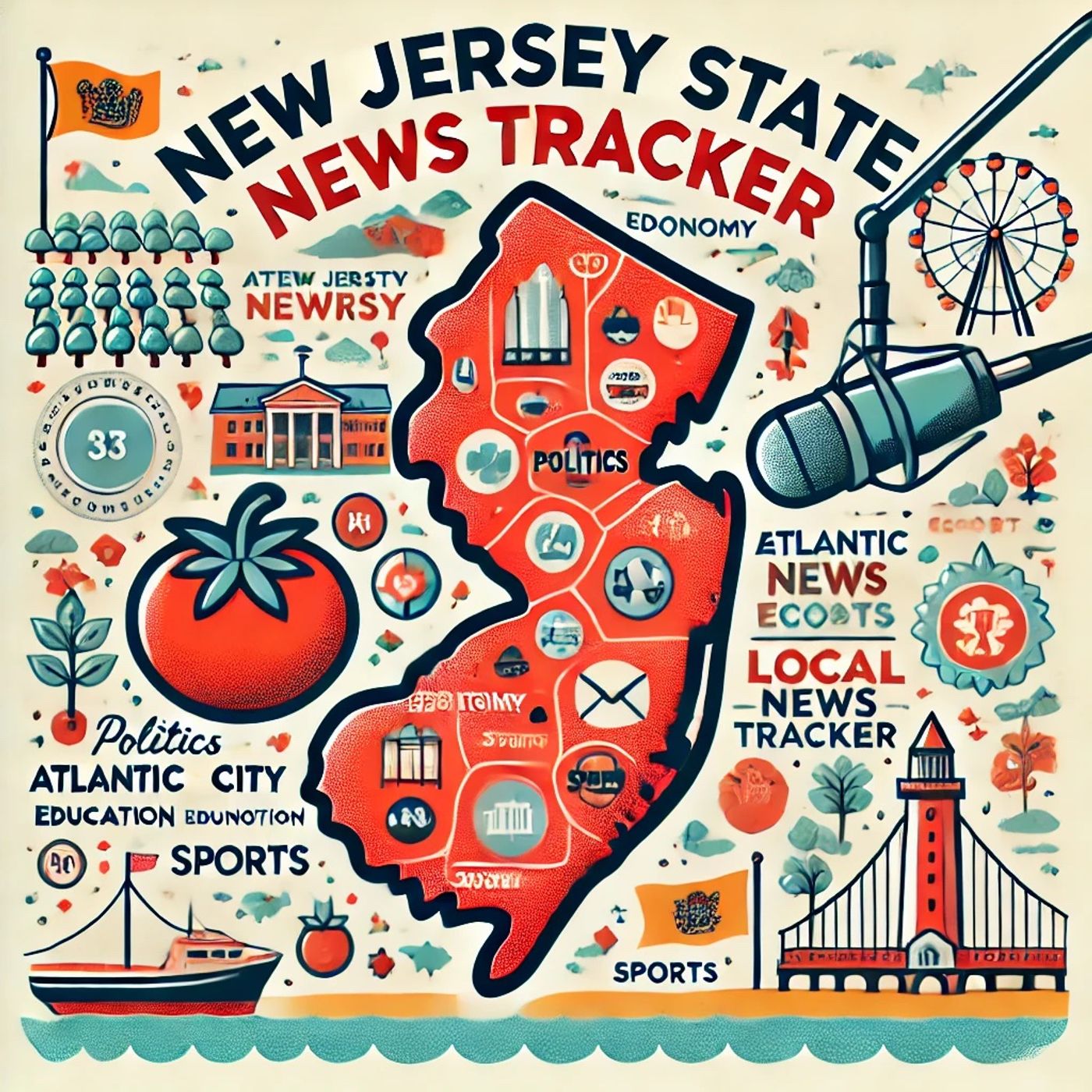New Jersey State News and Info Daily
New Jersey Navigates Climate Challenges, Secures Federal Funding, and Adjusts Economic Policies

New Jersey has been navigating a variety of challenges and developments, from extreme weather conditions to legislative changes impacting residents across the state. One notable occurrence is the recent heat advisory that affected the region, highlighting the state's ongoing battle with extreme weather patterns influenced by climate change. This specific advisory, in effect from 11 a.m. to 8 p.m. on a Wednesday, underscored the need for preparedness in the face of rising temperatures.
Amidst these environmental concerns, New Jersey's political landscape has been quite active. Republican Jeff Van Drew, representing the state’s 2nd Congressional District, has been a significant figure in this sphere. Representing approximately 780,000 residents, Van Drew successfully secured a substantial $92.3 million for projects within his district, showcasing the intertwining of federal funding and local developments.
Economic adjustments have also been a focal point in New Jersey. The state's gas tax saw an increase by nearly a penny for both gasoline and diesel. This adjustment came after a slight decline in fuel consumption across the state. Such economic measures often reflect broader trends in energy consumption and can have various implications for state revenue and environmental policy.
These events depict a state actively managing its environmental, economic, and political challenges. Whether addressing climate-related advisories, securing federal funding for local projects, or tweaking economic policies to better suit the fiscal health of the state, New Jersey presents a dynamic case study of a state in constant motion, adapting to both internal and external pressures in an ever-evolving landscape.
Amidst these environmental concerns, New Jersey's political landscape has been quite active. Republican Jeff Van Drew, representing the state’s 2nd Congressional District, has been a significant figure in this sphere. Representing approximately 780,000 residents, Van Drew successfully secured a substantial $92.3 million for projects within his district, showcasing the intertwining of federal funding and local developments.
Economic adjustments have also been a focal point in New Jersey. The state's gas tax saw an increase by nearly a penny for both gasoline and diesel. This adjustment came after a slight decline in fuel consumption across the state. Such economic measures often reflect broader trends in energy consumption and can have various implications for state revenue and environmental policy.
These events depict a state actively managing its environmental, economic, and political challenges. Whether addressing climate-related advisories, securing federal funding for local projects, or tweaking economic policies to better suit the fiscal health of the state, New Jersey presents a dynamic case study of a state in constant motion, adapting to both internal and external pressures in an ever-evolving landscape.
- Broadcast on:
- 28 Aug 2024
New Jersey has been navigating a variety of challenges and developments, from extreme weather conditions to legislative changes impacting residents across the state. One notable occurrence is the recent heat advisory that affected the region, highlighting the state's ongoing battle with extreme weather patterns influenced by climate change. This specific advisory, in effect from 11 a.m. to 8 p.m. on a Wednesday, underscored the need for preparedness in the face of rising temperatures.
Amidst these environmental concerns, New Jersey's political landscape has been quite active. Republican Jeff Van Drew, representing the state’s 2nd Congressional District, has been a significant figure in this sphere. Representing approximately 780,000 residents, Van Drew successfully secured a substantial $92.3 million for projects within his district, showcasing the intertwining of federal funding and local developments.
Economic adjustments have also been a focal point in New Jersey. The state's gas tax saw an increase by nearly a penny for both gasoline and diesel. This adjustment came after a slight decline in fuel consumption across the state. Such economic measures often reflect broader trends in energy consumption and can have various implications for state revenue and environmental policy.
These events depict a state actively managing its environmental, economic, and political challenges. Whether addressing climate-related advisories, securing federal funding for local projects, or tweaking economic policies to better suit the fiscal health of the state, New Jersey presents a dynamic case study of a state in constant motion, adapting to both internal and external pressures in an ever-evolving landscape.
Amidst these environmental concerns, New Jersey's political landscape has been quite active. Republican Jeff Van Drew, representing the state’s 2nd Congressional District, has been a significant figure in this sphere. Representing approximately 780,000 residents, Van Drew successfully secured a substantial $92.3 million for projects within his district, showcasing the intertwining of federal funding and local developments.
Economic adjustments have also been a focal point in New Jersey. The state's gas tax saw an increase by nearly a penny for both gasoline and diesel. This adjustment came after a slight decline in fuel consumption across the state. Such economic measures often reflect broader trends in energy consumption and can have various implications for state revenue and environmental policy.
These events depict a state actively managing its environmental, economic, and political challenges. Whether addressing climate-related advisories, securing federal funding for local projects, or tweaking economic policies to better suit the fiscal health of the state, New Jersey presents a dynamic case study of a state in constant motion, adapting to both internal and external pressures in an ever-evolving landscape.